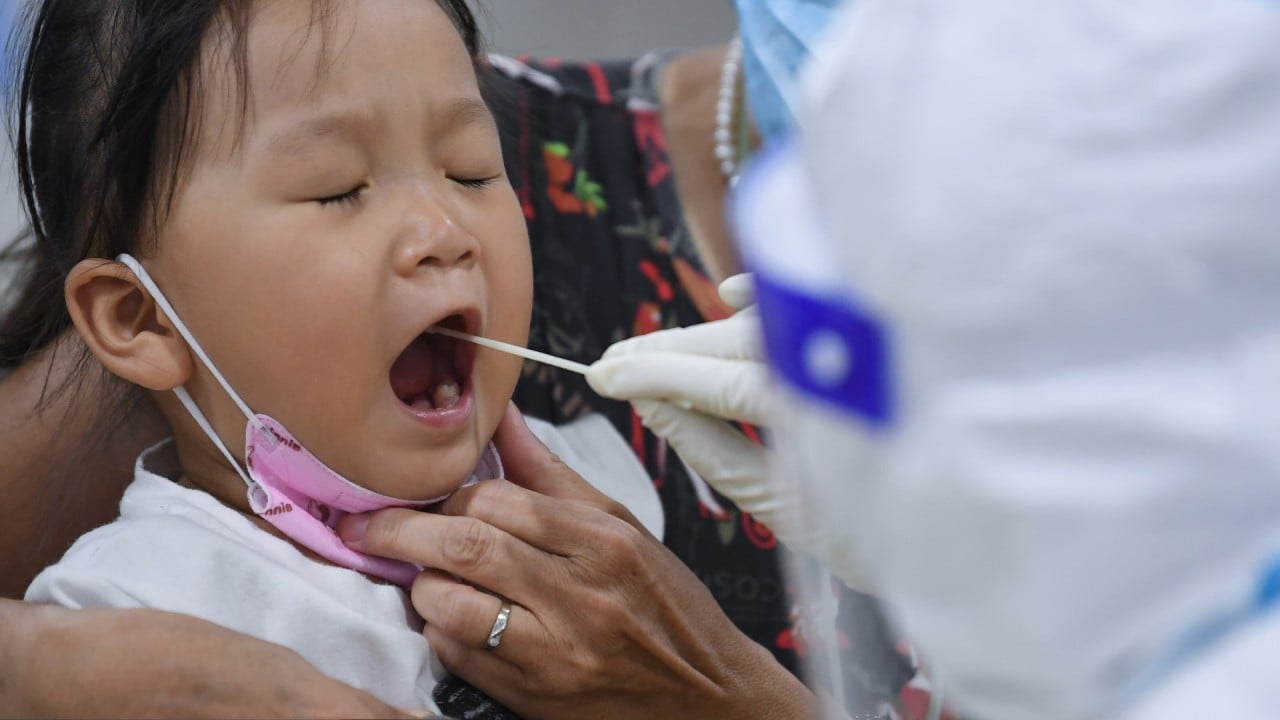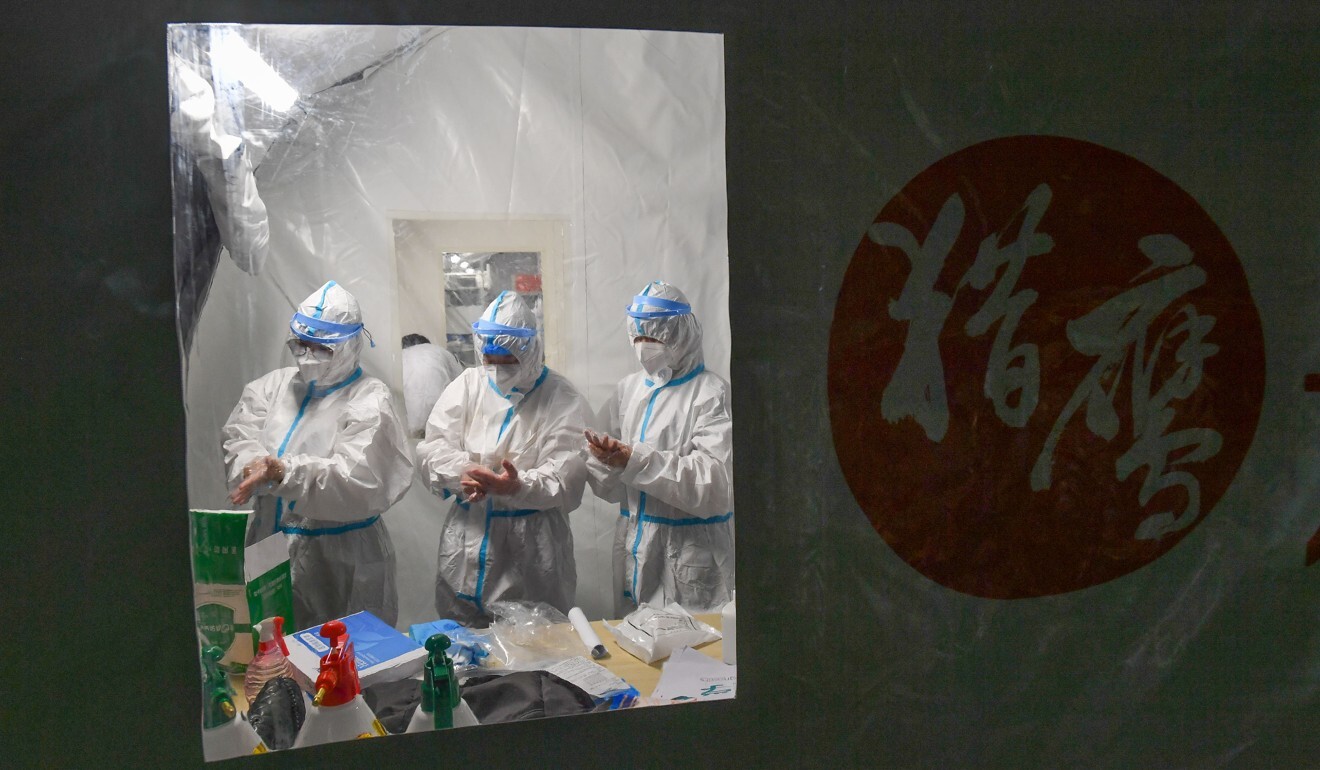
Get tested and stay home: Guangzhou tries to stem Covid-19 outbreak
- Authorities have vastly expanded screening capacity and public health expert says situation ‘would have been more alarming’ without it
- Some 70 locally transmitted cases have been found, some of them the highly infectious Delta variant, but it is unclear how it entered the community
Mass testing has been a key strategy in trying to contain the spread of the virus, especially in the hotspot districts of Liwan, Haizhu, Yuexiu and Tianhe, where getting tested is mandatory. More than 7.81 million of the city’s residents had been tested as of Wednesday, according to Chen Bin, deputy director of Guangzhou’s Health Commission.
So far, 70 locally transmitted cases have been found across Guangdong province, 14 of them asymptomatic infections. That includes 16 new cases confirmed on Wednesday, five asymptomatic.

02:02
China’s southern Guangdong province in high gear to quash Covid-19 outbreak
In Guangzhou, authorities have transformed the city’s biggest sports stadium into a huge testing facility with four makeshift nucleic acid testing laboratories set up on Wednesday, each of which can process 120,000 tests a day.
Zhao Wei, a public health professor at Southern Medical University in Guangzhou, said the city was equipped to cope with the level of testing needed.
“Testing is the first step in prevention and control,” Zhao said. “If Guangzhou didn’t have such strong testing capacity, this outbreak would have been more alarming.”

That view was echoed by Yang Zhicong, head of the Guangzhou Centre for Disease Control and Prevention. He told reporters that the strain found in the latest outbreak had a relatively short incubation period and was highly transmissible.
“At present, it seems that the mass screening in Guangzhou is working fine,” he said. “Our modelling has shown that the situation could have been much worse – we estimated we could have had as many as 300 infections if we hadn’t taken these prevention and control measures.”
According to Lei Chunliang, head of the No 8 People’s Hospital of Guangzhou Medical University, vaccinations have also helped to reduce transmission.
“In this outbreak, four patients were found to have been infected after receiving their first dose of the vaccine but they’re not seriously ill, even though they haven’t had a second dose,” he said. “So the clinical results show that the vaccine has been very effective in preventing serious illness.”
China has stepped up its vaccination drive in recent months, aiming to get 40 per cent of the population – or 560 million people – inoculated by the end of this month. More than 10 million people had been given at least one jab in Guangzhou as of Monday, and the national total was at 704.83 million doses by Wednesday.
Jin Dong-yan, a molecular virologist and professor at the University of Hong Kong, noted that it was still not known how the Delta strain came into the community. He said the statistics suggested it could have been in stealth transmission for some time in Guangzhou before it was detected last month.
“The scale of the outbreak is a little bigger but it is not uncontrollable … it is smaller than the third or fourth wave in Hong Kong. It is expected that [the Guangzhou outbreak] has been going on for a while,” he said. “The elderly woman in Liwan district had been infected for a while and the chain of transmission is still not clear.”
Additional reporting by Holly Chik

